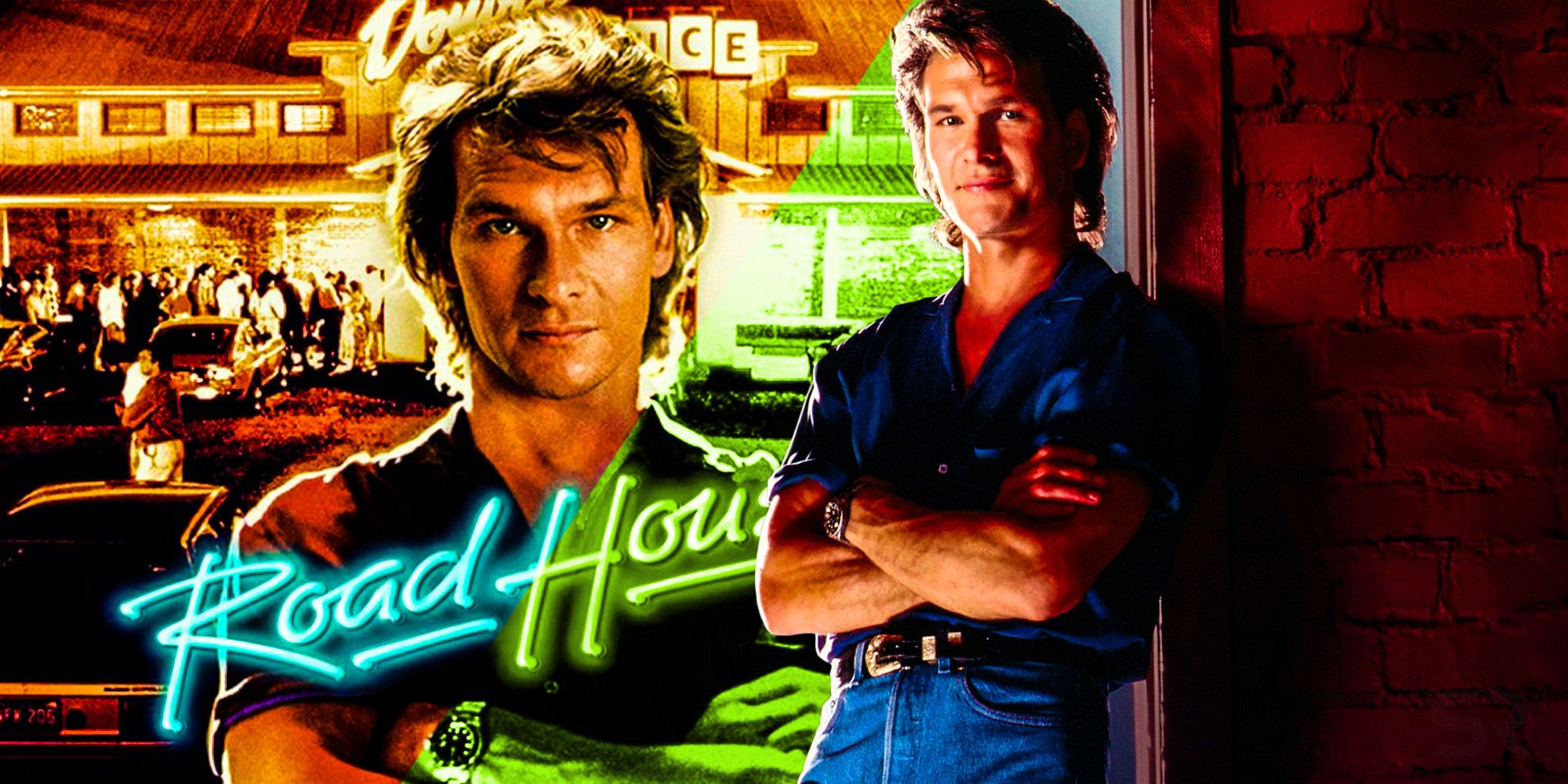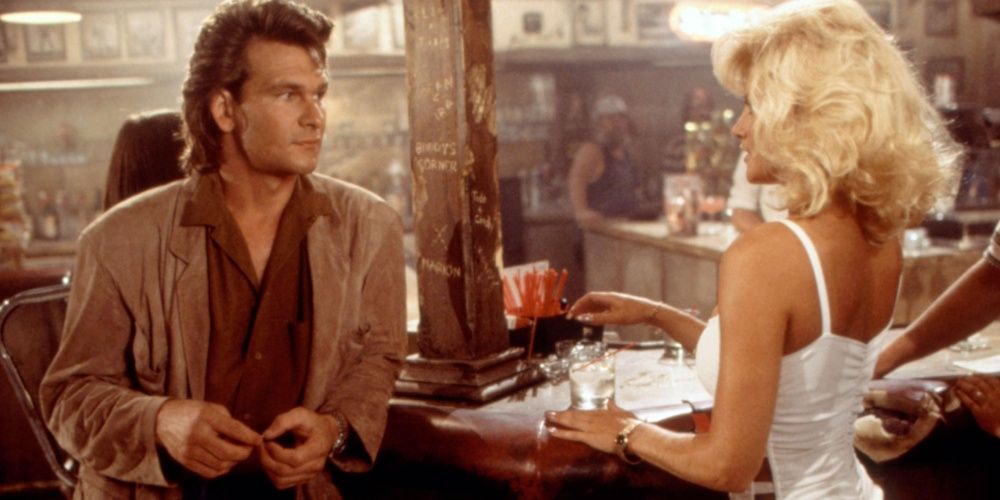1989's Road House was a smash hit, but Patrick Swayze declined to be in the sequel, so it killed off his character, Dalton. The original movie captured the sort of beat-'em-up, booze-soaked, macho man vibe that was quite potent in the '80s. Swayze's portrayal of Dalton in Road House, a quietly intense cooler (a term for a head bouncer) known for his ability to clean up the sleaziest and most rough-and-tumble bars, is iconic; yet, the character is absent from the sequel, Road House 2.
Dalton, who — funnily enough — has a philosophy degree in the area of, as he puts it, "man's search for faith," is seeking to find his own purpose. He has a checkered past, one where he killed a man in Memphis, though it was in self-defense. Beneath Dalton's cool, in-control exterior that he projects, there's a great deal of push and pull going on within him throughout the course of Road House. He's a layered guy, practicing martial arts in between shifts tossing out rowdy bar patrons. It's part of what engrosses the audience and has helped garner massive amounts of fans.
The story in Road House was continued with a direct-to-video sequel in 2006. Road House 2: Last Call follows DEA agent Shane Tanner (who's Dalton's son, played by Johnathon Schaech). He shows up in town to investigate after his Uncle Nate (Dalton's brother, played by Will Patton) is roughed up by a group of rivals looking to take his Louisiana bar. But Dalton himself isn't actually in Road House 2; viewers find out that his character had died prior to the film. Drug kingpin Victor Cross (Richard Norton), had sent the bar's former, disgruntled cooler, Wild Bill (Jake Busey) to take Shane out, but he had ended up shooting Dalton in his place in an unsatisfying, off-screen death.
On a 2020 episode of the Bulletproof Screenwriting Podcast with Adam Ferrari, the sequel's screenwriter, Miles Chapman, explained his impression of why Patrick Swayze turned down the role. For one thing, the sequel wasn't theatrical. Also, according to Chapman, the film had a small budget from the beginning, and "no action movie should really be shot in 17 days, unless its, like, one location." He said about Swayze, "If I was a little more savvy back then, I would've known that there was no way he was going to do this thing [Road House 2]." Chapman also said that he was a huge fan of the original Road House, and that he had planned to have Dalton in the follow-up. He had written the character as "doing an Obi-Wan Kenobi in the bouncer world kind of thing" and "teaching a younger character to, sort of, take the mantle." Ultimately though, Dalton had to be cut out.
But it was Patrick Swayze's portrayal of the calm-yet-effective cooler that made the first hit what it was. Besides his old pal Wade Garrett (Sam Elliott) and his love interest, Doc (Kelly Lynch), Dalton was the movie. And having him not only absent from the sequel, but also writing his character to have died off-screen didn't sit well with fans or critics — and it's easy to see why. It was scenes like his "be nice, until it's time to not be nice" bar speech, as well as his ability to not actively seek out violence like the other hotheads in Road House (but not run from it either) that fans became enamored with.


